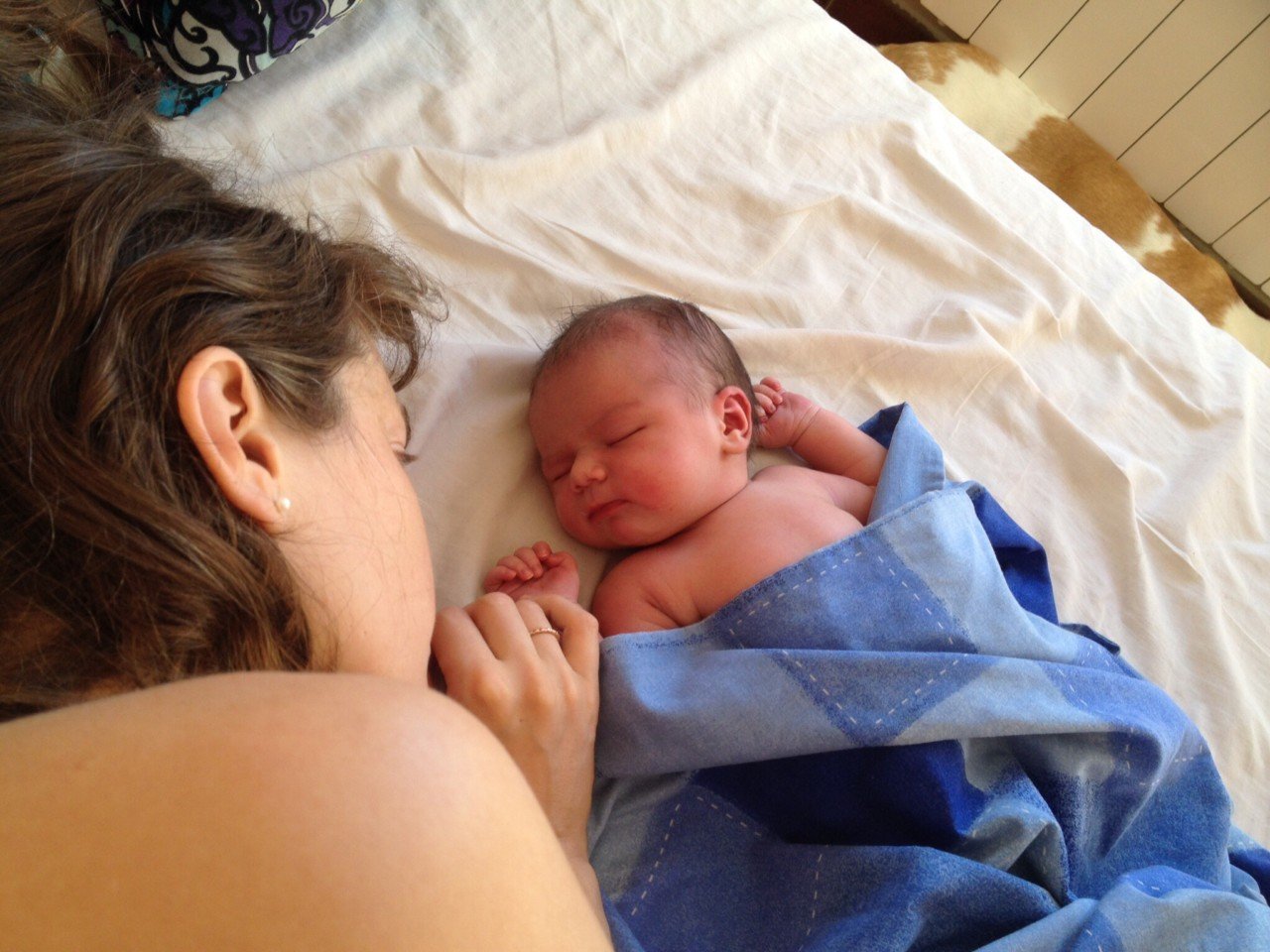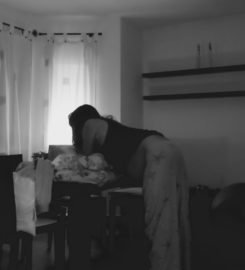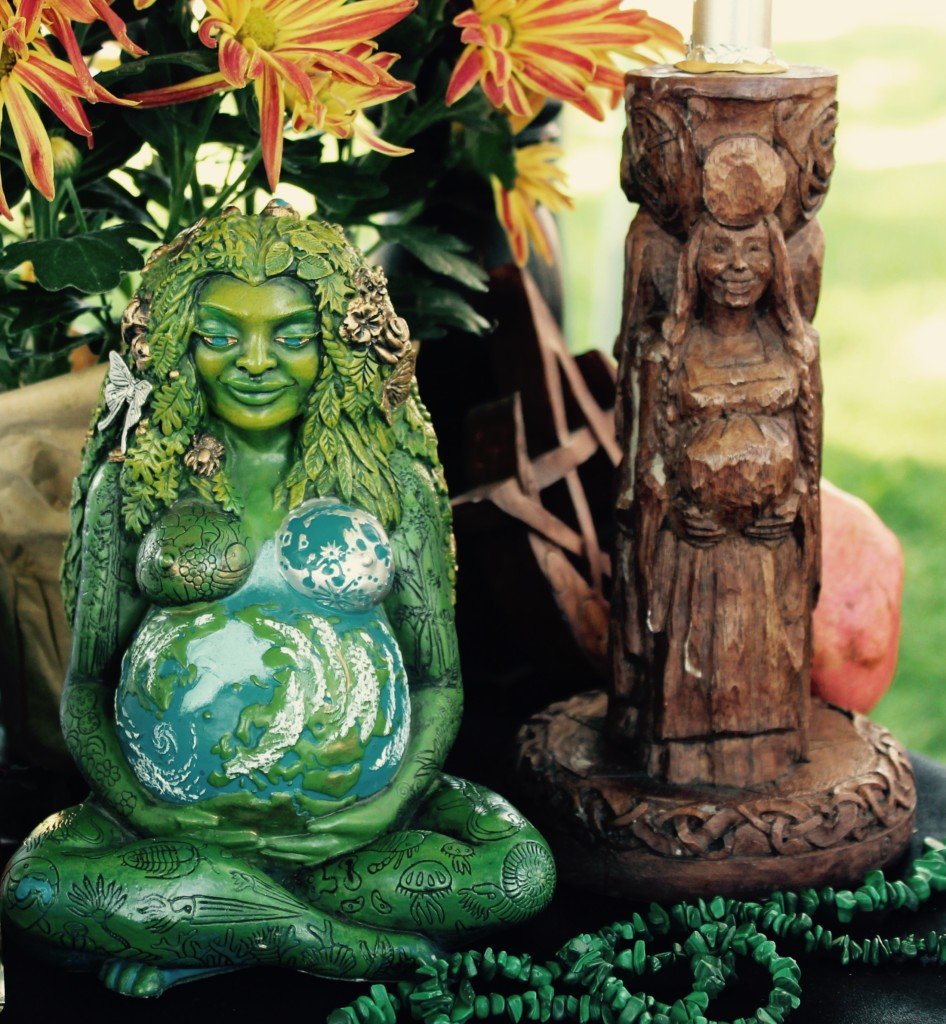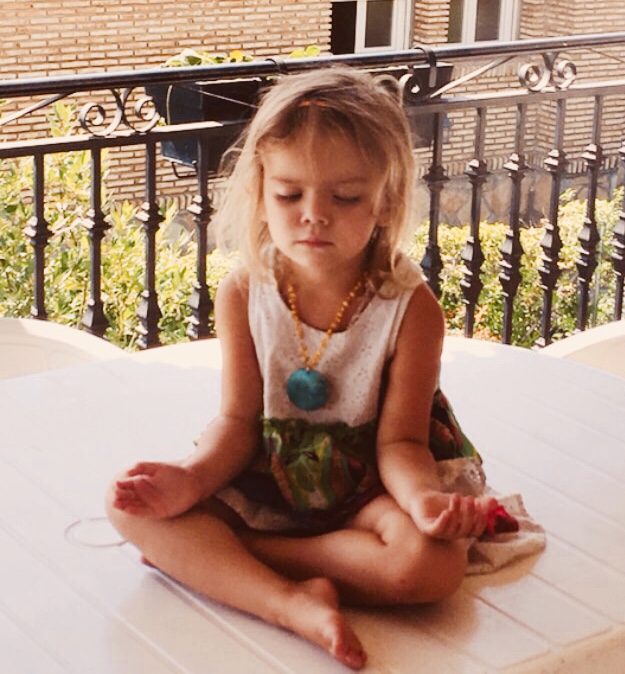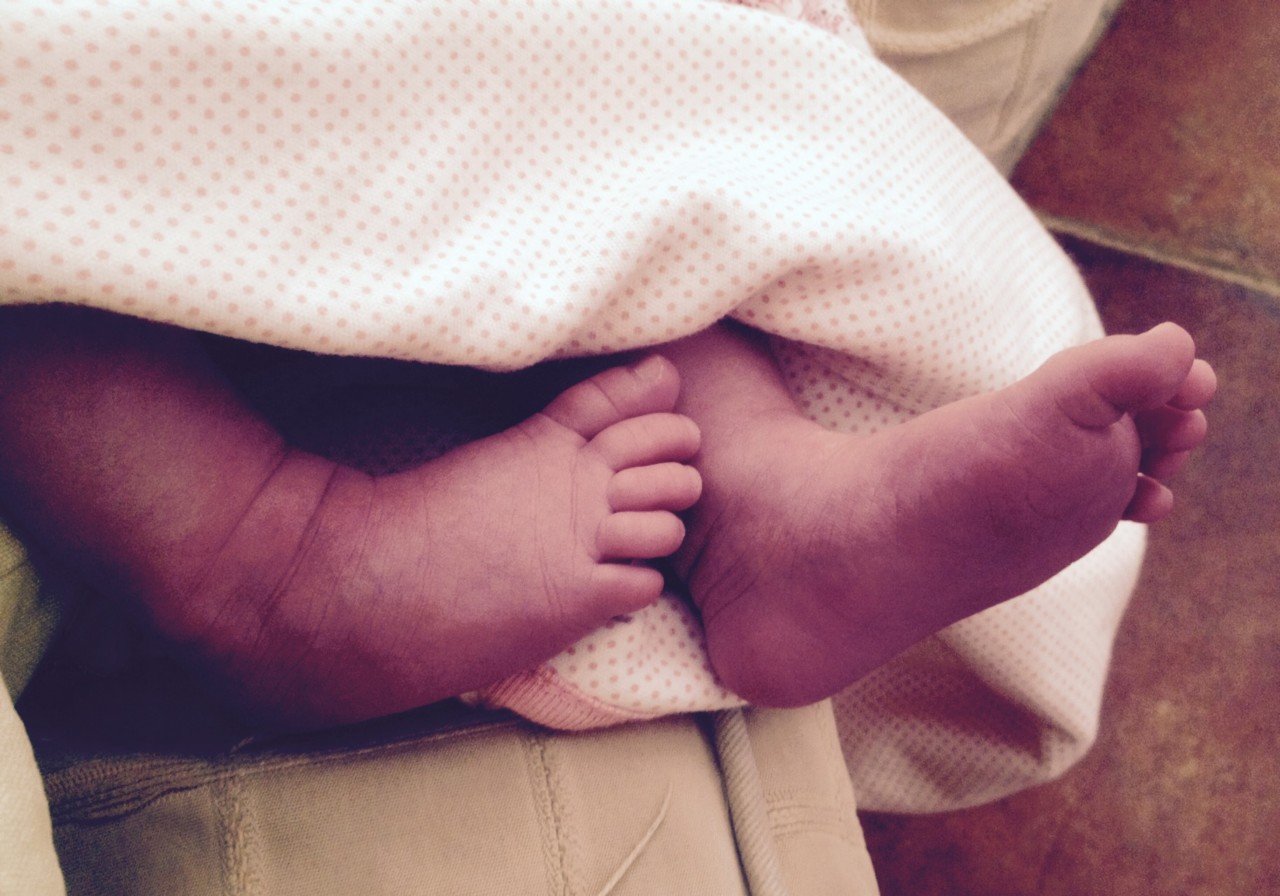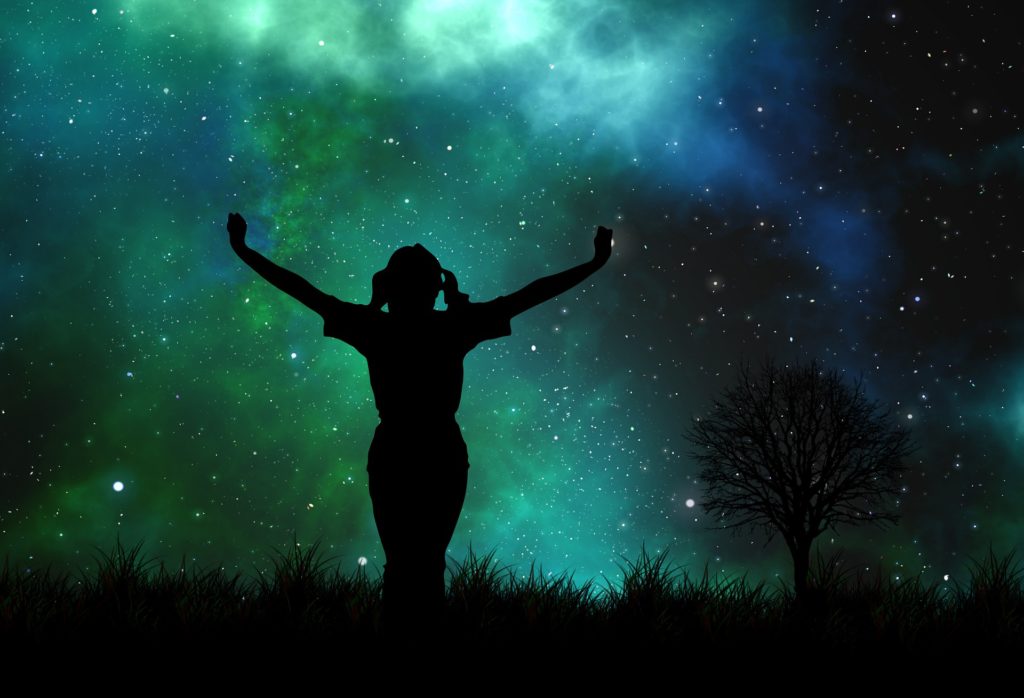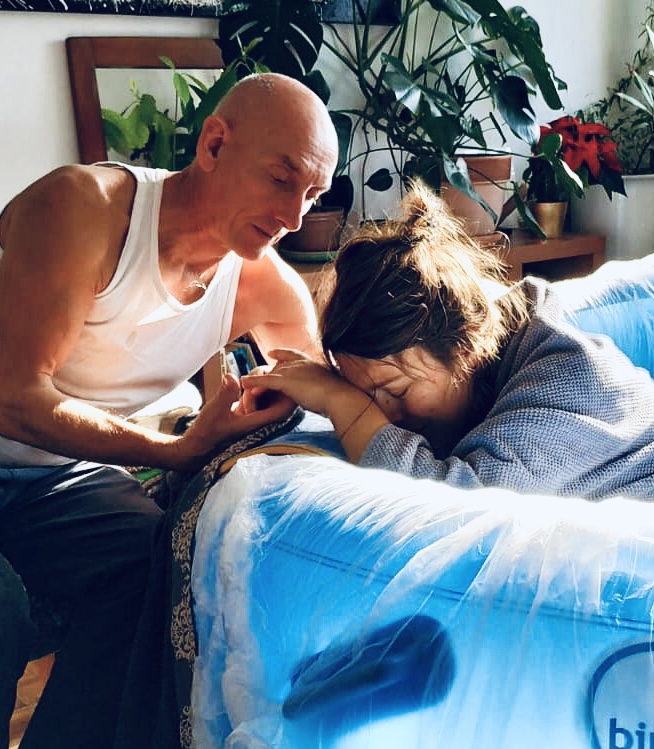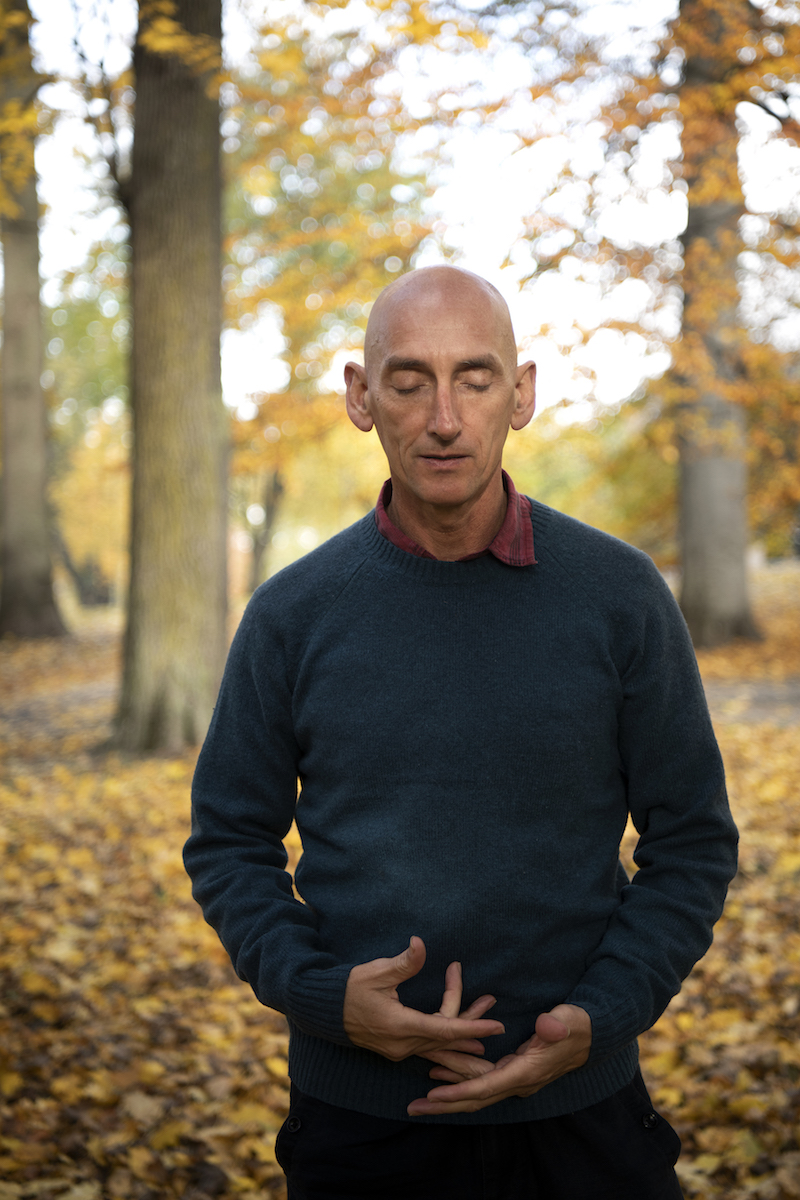
Photo: Paul Golden
The subject of birth continues to fascinate and inspire me. It is also often a topic that instantly connects me with others who have a similar passion about it. Independent midwife Paul Golden is one of such connections, and although we have never met in person, we’ve shared many conversations with him about birth and life in general. Paul became an important part of our family as he was a witness and a space-keeper during an intimate and powerful home birth of my baby niece.
Paul started his work as a nurse in neonatal intensive care and felt a calling to become a midwife. Over the last 30 years he has worked as a midwife independently and in various hospital settings across the world. Trained in law and mediation, Paul is an expert witness, lecturer, author, film-maker and a tireless activist in the field of midwifery, law, global human rights in childbirth and childbirth choices.
Although perhaps typically we think of midwives as women, the word itself derives from Old English “mid wif”, meaning “with-woman”, and refers to a person assisting in childbirth regardless of their gender. To me Paul is an inspiring example of how powerfully men can hold space and support the feminine energy during this intensely transformative and defining moment of a woman’s life. He is a guardian of natural uninterrupted birth and someone who has immense faith in what women and their bodies are capable of. Paul has attended thousands of births in hospitals and at homes but says he hasn’t done anything as impressive as giving birth. Each time I express my admiration about his work, he replies that it’s the woman who does all the work, while he does nothing. I believe that certain key moments in life and birth call us to do nothing, and Paul does it really really well.
If you enjoy long conversations about women’s choices during pregnancy and birth, the magic of our bodies and the power of our mind and intentions, then our conversation below is for you! You can also find out more about Paul’s work and get in touch with him here.
Paul: How old is your baby now?
Asta: She turned one in October. 2020 was a strange year, wasn’t it? With the first child, the first year of their life feels really long because you are constantly absorbed in what they are doing, all that is happening. With the second one, you have so many other things going on, it feels different. And then the whole 2020 was just strange, generally. The time just feels irrelevant somehow.
Paul: It makes the family more important. But it also makes us wonder what world our children will inherit, and how we can help them to face the challenges, although we can’t even imagine what the challenges are going to be. It will be very different, I think. But our grandparents or great-grandparents couldn’t imagine the world that we now have.
Asta: I feel sometimes that it is the kids who have more answers, that’s why they are coming here. Even now, they are showing us ways to be, just how to be in this world. If we don’t interrupt that process for them, they can show us solutions to the problems that we can’t even imagine yet. I have a lot of hope. Teenagers slightly scare me because I see them as so powerful, they have such intense presence, and ideas, and certainty about themselves. I think there has to be something there – if we allow them to give us some answers, there are many of them coming in with the new generation.
Paul: Thank you for saying those things. It’s about deep trust in life. When we were children, and we still are partly children, we needed to be trusted but we were often squashed by society or parents and people around us. It was normal, “You can’t do this, you can’t do that.”
Asta: You know even when they say things like, “The new generation, they are lazy or they don’t want to work, etc.”, I always see it as – wow, it’s amazing, they are presenting us with a new way of how we should work. They are not here to sit in front of their laptops, moving their mouse from 8AM until 7PM. They are here to do what they are passionate about, what drives them at times when they feel most inspired. I feel a lot of hope. And kids! Current little ones, they are so powerful, so certain, so clear about themselves, about their preferences. Instead of it seeing like – tsk, kids these days, they don’t comply with the rules – I think it’s amazing they are not here to comply with the norms.
Paul: But does that depend on whether we create the space for them of consciousness and awareness? My daughter has two older siblings. Her mother raised them without a TV, they have a lot of independence, and at a very young age they have much more autonomy. So even my two-year-old, she’s just turned two, she knows what she wants, what she doesn’t want. She expresses it very clearly. And she is not used to being told what to do. I am really sensing the strength in her. At the age of two, I was being smacked by my mother all the time and I didn’t have a voice, and here is my two-year-old completely expressing what she wants and doesn’t want.
Asta: Yes. I see that a lot in kids of this generation. I think there is a beautiful movement of parents who are choosing to parent consciously with more respect and more listening, with more seeing them as equals. Which we should – why not? – they are human beings who have the same preferences and communicate from birth. But I see that, nearly regardless of parenting style, there is like a wave of this new generation children who are very clear about what they want, about the reason why they are here, about things that they are good at, about the experiences that they want to have. I find it really interesting. As you are saying, kids who are just a few years old and yet are so determined.
Paul: But even Beethoven knew this. When he was seven-years-old, he was writing great music. So there have always been special souls coming, but I think we’ve squashed a lot of them. And maybe this is speeding up, this creativity. It feels like the destruction is also happening because when we focus on the news, we can see crazy stuff, but there is immense creativity and we can access it.
Asta: I agree, I really really do.
Paul: So about these big topics. What comes to your mind, if we are going to talk about birth and particularly freedom to birth, human rights, women’s rights?
Asta: A lot of that I see as your expertise, Paul. You have so much experience in that field, you’ve been a huge advocate, very well aware of what was going on in Lithuania when there was no possibility for home births. I think the key in this is – ultimately – about everyone having a choice. Often times when I have conversations about home birth, people say, “Well, that’s not for everyone, not every woman wants that.” But that’s OK, as long as the women who do want it have that possibility.
Paul: But the reverse question could be, do they want trauma? Because most of them will get trauma. If they are saying, “It’s my right to go to the hospital, I want to go to the hospital”. OK, so you want to be safe, you want to be in the hospital, and then maybe you are abused and treated badly. Shame and all sorts of things are triggered, but they just bury it and think, “It was my choice to go to the hospital, I wanted that, even though they treated me badly.” A bit like, “Well, my parents treated me badly but I still love them.”
Asta: Yes. Or, “I turned out OK.” The final outcome is that the baby is OK, so we should be all OK and happy.
Paul: And then their relationships – the most important relationship is with themselves – suffer. As well as the relationship with their partner.
Asta: With the kid – the baby.
Paul: I wasn’t thinking yet about the kid, but yes, with the kid, their partner, with themselves. Just recently, I saw in Slovenia there is a woman promoting freedom for birth saying, “I remember eight years ago we shared all this information, thinking – how fantastic, things would change. But the thing that didn’t change was the women. They still trust and believe in the hospital. Even though the experience in the hospital was bad and we wanted to educate the women, they were still choosing it and not speaking out for what they wanted.”
Asta: But do you think, Paul, there is something here about how things get normalised? Like this is seen as normal, you know? We see it everywhere. For me one of the turning points was seeing – and I keep mentioning it – that documentary Orgasmic Birth. It was such a turning point to see birth presented in a way that I had never seen anywhere else. In all the films, all the comedies, any show – whenever someone is pregnant, we see the same images over and over again. I feel that they program us to accept that this is normal.
Paul: So the stereotypical images of a woman lying on her back and screaming in pain?
Asta: Yes, being rushed to the hospital with flashing lights. In the American films, they are always sat in a wheelchair and are wheeled in, as if she is a person who needs a wheelchair. And there is always some big emergency. Birth is usually not like that – it can be many many hours, especially, for first births.
Paul: In a moment we can talk about your birth. I’ve never had a birth because I am a man. Earlier you complimented me for what I do. All that I do is nothing, and that’s the main thing. Stop inducing, stop giving fear, stop telling the woman the baby is too big, too small, too young, too old. It’s always perfect and we can work with that. Even when they die, it’s perfect – it is grief, it is bereavement, it is part of life and part of love. My experience of observing, being present, witnessing birth is so many women looking down and going, “Wow”, some of them saying, “I could do that again”, the minute they’ve given birth. Not, “Oh, that was a trauma and I was in pain”, but “That was so mind-blowing, soul-blowing, so orgasmic, I could do that again.” I mean, when you have one orgasm, don’t you want another one? And if you have a great birth, you want another birth. If you have a traumatic birth, you might want to adopt. So how were your births?
Asta: I’ve had two amazing births. They were both extremely powerful. For me, the first birth – I wanted an empowering one. That was my key word because I remember after watching that documentary Orgasmic Birth, I sat there in front of the screen feeling like – what just happened? It was like a mind-altering experience. How come I had never seen this? How come my mom had never told me? Or my friends who already had kids? Nobody had ever told me that birth can be THIS – a woman completely in her power, receiving her baby, catching the baby herself, and then having this incredible moment, beginning this epic journey that she has just initiated herself into. It was such a powerful experience. And I remember with the first birth I was very determined that ‘EMPOWERED’ was the word, I wanted to feel the power of birth. I chose home birth because of the reasons you’ve shared. The more I looked into it, and I did a huge research – hours and hours and hours of listening to podcasts and reading books and having conversations, I signed up for courses online with Debrah Pascali-Bonaro (Pain to Power course). I looked into so many different resources just to understand what was happening and what was the narrative in the hospital.
The more I looked into it, the more I understood that risks are everywhere – there are risks in hospitals, there are risks at home. But I felt that for what I understood birth to be, I needed to be at home. Because if birth requires the same hormones as making love, the same sense of surrender, I knew I could not even imagine experiencing that in the hospital setting. So for me home was a very natural choice, and once you make that decision, things open up and there were people who were supporting me, we found a private group of midwives, resources and information.
There are never guarantees, but there are no guarantees when you open the door and leave your house on any given day. So I was accepting that, OK if there is something, we will have the transfer bag ready and the car with fuel ready to go to the closest hospital, should that be the case. But when you start with an intention, I think, events move in a different way.
Paul: That’s great – when you start with intention, you can make it happen or allow it to happen, facilitate it. And if it didn’t happen, at least you had that opportunity. I think when you go to the hospital without any intention, just with a passive, “They will do the best they can, it will be OK.” And different staff come and go, different situations happen, and it may not be what the woman expected or wished for. Maybe she didn’t set up an intention. Maybe we could do that with life, what do you think? What is our intention with life?
Asta: Of course. I do believe that there is a sort of momentum in things. That once you set things in motion, there is a sort of an inertia that adds people, support, situations, that all help the vision that you have. And like I said, even if there are no guarantees, and even if you end up in a situation where the baby had to come through a Cesarean, this kind of preparation and having an intention allow you to deal with it differently. You feel like, “Well, OK, in every moment we made a choice, depending on what the situation required.” Rather than – as you say – you enter this land that has its own rules, its own laws and protocols which many times you know nothing about, and you get carried by the inertia of that place, those people. And then when things happen, it’s a bit of a chain of events that you feel you had no control over, because the decisions were made by someone else or you were being told that this is the best decision without being given any alternatives.
Paul: What do you make of the hierarchical structure of a hospital where the doctor is the boss and the senior obstetrician is making the decisions for a woman’s birth, not the woman?
Asta: Paul, I had my midwife kneeling on the ground below me while I was giving birth. And it was such a powerful moment of someone looking up to you as THE Goddess. She was just a few centimetres below me on the floor, holding my hand and saying it was all OK. And for me that was the moment of feeling – I am doing this. But this doesn’t even start at birth, Paul, does it? If a pregnant woman is frequenting hospital for all the check-ups, all the visits, she is already being set up for that. Because every visit you are being told – this is like this, this is the risk, you don’t know that, etc. So you are constantly already being told, “You don’t know what’s best, we know best, we will tell you what happens next”.
Paul: Some women who book an independent midwife are still going every couple of weeks to their gynaecologist or obstetrician, and are saying, “I’ll just have this scan or this check”. They want to check inside, check the cervix. There is no benefit, only risks. But, “I still want an independent midwife and my choice is to birth at home.” I think they probably haven’t got a clear intention set up. They are hedging their bets and are playing both sides. “I’ll have an independent midwife but I will still do all the hospital things” is not really independent thinking with a high likelihood of having a great home birth. It’s much more likely to please the hospital. And that’s what worries me when people are in the hospital – we are meant to please the client, the woman, but actually the women are often trying to pleasing the hospital.
Asta: I think it’s also the fact that we’ve had generations of being told that birth is a scary, risky medical event. During my pregnancies I felt amazing, I had an amazing group of women that I could connect with if I had any questions – they were midwives who were with me during my first birth, and we continued to have regular conversations during my second pregnancy. But I had no need to go to see anyone every two weeks or every month. I spent a lot of time walking in the mountains with my big pregnant belly, feeling absolutely amazing, and reminding myself that I would know if there were something to worry about, I would intuitively know. We know! If you listen to your body, you know. And still in all of this, I somehow felt like a rebel. The fact that I chose to just be and trust, and not to test or scan every two weeks.
Paul: So is that about taking responsibility for yourself? But maybe you do that in life anyway, and some women are afraid to take that responsibility in some sense. Did your parents give you a greater degree of autonomy? What gave you that autonomy for self-responsibility? Was it something in your family or was it something you’ve learned?
Asta: I think some of it probably comes from early childhood. I remember my parents being very independent thinkers in some situations. They often had ideas and read books that didn’t follow the mainstream narrative. But for me one of the big changes was a personal health situation that I had years before getting pregnant where I realised that, “No no, I am the one who has to make the decision to heal here, I am the one”. Because the only thing that the medical model had to offer me was medication and, “We will see how it goes for the next ten years that you’ll be on medication.” I started asking around and I realised that many women were having the same issue and they were all on medication for many years. And I realised that, well, for me that’s not a solution. So I was lucky to find a very young open-minded GP who we agreed with – sort of outside the ears of the system – that she is going to do tests and I will heal separately from this. We agreed she wouldn’t offer me medication, as I was going to work with a holistic nutritionist and we would only check the progress. And the GP was amazed that in months that followed, all the results of the blood analysis were showing changes. She said, “I’ve never seen this before because the only thing that we do is this conveyor belt of medications and then people go off”. So for me that was one of the points where I realised that, “No, mainstream information about how we heal, or about what we should be eating is not correct.” And once you start opening your mind, this crack appears and you begin to question everything.
Paul: It’s good to hear you say all these things. Generally, midwifes are women, so I am someone who’s questioned that stereotype because I had a strong feeling to work with birth. I was invited and asked by many women whose babies I was helping with breastfeeding or sick, premature babies, saying – would I be their midwife. I said, “I can’t, I am a man.” So all these stereotypes that we grow up with about not taking responsibility for ourselves, for what we eat, how the food is grown.
Again, it comes back to consciousness, and going within. How does it feel? What do we wish? What would we like? And often we are not focused on what we would like, but on what we think other people would like. And that’s a lose-lose, nobody gets what they want. Actually, when we do what feels right for us, probably it benefits everybody else.
Asta: I think there is also this intuitive knowing that what feels good is the right thing. And it gets sort of destroyed while we are kids, this idea that whatever feels good is where we should be moving towards. It gets completely flipped over and everything that feels good, whether it has to do with your body or with how you want to move, where you want to touch, what you want to think, it becomes the opposite – you shouldn’t do that. We grow up in this constant attempt to conform, to fit into what others think or to follow the rules that instruct how we should act. Rather than – this feels good to me, well, then it must be a good thing. That’s how the whole nature organises itself.
Paul: You are a woman from Lithuania, living in Spain, speaking English, your sister lives in England, you are talking to me in Central Europe. So I am guessing that you’ve travelled, you’ve been around. Did it help you open your eyes? In Lithuania, generally, it’s quite conservative, I would guess.
Asta: It’s been a long time since I moved from Lithuania. When I was a kid, it was part of the Soviet Union, so it was a very closed setting. But yes, travelling opens you up to the possibility that there are so many ways to do life, and to do things. And whatever feels right in one country is completely not the norm somewhere else. And then you begin to question – well, what does that mean, what is a norm?
Paul: The simple picture I gave when I first travelled was eating with your hands. It was seen as really bad manners in England. But you go to India and this is the way. In fact, they all wash their hands before dinner. In the poorest restaurants they will have a sink, and we don’t do that in England. Then you go to an Oriental country and they eat with chopsticks. And so you realise straight away that there are different “normals”. It helped me think about being a man who is a midwife because there are just different normals. One country will have none and another country will have many. It shouldn’t matter. And then we look at – are women able to be engineers or politicians or fly airplanes or be police officers.
Asta: Or how they give birth.
Paul: But we are limited in our minds that women were not allowed to do all sorts of things. There is no stopping birth – it happens, the baby is coming. I was looking at stereotypical roles, so Lithuania may have been a little bit – putting the word in your mouth – oppressive. If it was conservative, it could have been oppressive because it was a communist country. So you don’t sound very oppressed or communist (laughs). Have you been to Asia?
Asta: I have, yes. I’ve travelled with work. Mostly to Nepal, but also India, the Philippines.
Paul: One of the big things I appreciated with Asia was that people celebrate what they have when they have so little. And we have so much and want more.
Asta: Very true. Relationships – I found that very beautiful. The sense of community. My work took me to very poor communities in very difficult living conditions. I remember before my first trip having this sense that – wow, I am going to see them and will feel so overtaken by this sadness or compassion. And actually the feeling was completely the opposite. Having spoken to these communities and participated in some of their meetings – of course there are things that need to be improved, like living conditions and housing, and comfort and safety. But for me there was a feeling that they have so much that I don’t. I don’t have a community to even go borrow salt from or if something happens, I don’t have my family next to me. It was the sense of – these are the strongest people on this planet. The most adapted to deal with what life has to offer sometimes.
Paul: So here is a question for you. You mentioned that you listen to a lot of podcasts, you’ve been on this amazing journey, you are a very empowered woman – what would you like to give back to other women? Is it through something like this that we can promote knowledge, choices around childbirth?
Asta: I think, Paul, what you said before – at the end of the day, whenever a woman is ready, the information is there. There are amazing people like you doing the work, there are books, etc. When I made that decision and that intention, the information started trickling in from different sources. And like you shared about the hospital births, that women still chose that experience, even though they had information that perhaps it wasn’t safe. Recently, with my friend we started this idea of doing women’s circles, and it’s all about tapping into your intuition and what feels good. Tapping into this space within you that makes you feel creative and empowered. I believe that there is never enough information. If you feel called to share, whether it is a video or a conversation, a simple story, that means there is someone out there who needs to hear it. If you feel inspired to do more videos, well then that means the world needs more videos because someone else hasn’t found them yet.
Paul: I feel the time is now. My colleague, Susanne Dorfler, is arriving from Austria at any moment, and we started this Trust Birth Trust Life together. And I have colleagues in other countries. So it is important that we do our work, it does feel that the time is now. I had a thought that you could include men. Invite men into women’s groups, maybe after you’ve had your own meetings a few times. Particularly, if you have food present. They will be eating the food, walking and talking, and you’ll find them saying, “Oh, my wife, my partner, she wanted this or that”. And they will have great learning and knowledge. Because when I do the hypnobirthing courses with my lovely friend Katharine Graves from KGH Hypnobirthing in England – I think you’ve see her book. She will have twenty families or couples quite often, and it’s usually during the break time when the food is there that the potential fathers are mixing and talking and sharing ideas. And they are very brave and honest, very sensitive, they’ll talk about their feelings and ideas. Women often have these women’s groups, and they are almost excluding men. But if you invite them in – because we are really part of the women’s journey for her giving birth and then we are raising children together, even if it happens in two separate households, we are still raising together.
Asta: Yes, I agree. I can see the need for space for both. When there are just women present, there is a sort of openness that allows the women to tap into themselves. But then I also believe that there is definitely space to include partners. This is one of the first generations where men can be really present for birth in a very different way from when my mom gave birth, my dad wasn’t even present in birth because it wasn’t allowed at the time. So these are the first steps in the direction of how men can be present for their partners and how they can best support. But even for women, I feel there is sometimes not enough information – how to open up to birth. So for men is even more so. In the moment of birth, I think many men are a little bit lost about what their role is and what they are there to do. “Oh, well the doctor is there, so I am no longer needed”, that sort of narrative.
Paul: It is quite conflicting for a man. He often witnesses his wife being helped, then somebody harms his wife (or partner – this is the same for gay/lesbian couples). You know, if you are a partner of a woman who is on her back and someone is doing a vaginal examination, she’s uncomfortable, she’s in pain. You can see it, even if she doesn’t say it. And maybe she said “stop”, and then you are really conflicted – do you stop the person doing it or are they helping save the life of your baby? And when the person doing it says, “I just need to do this”, and the woman says “No, stop”. There are a couple of Norwegian educators and they demonstrate this with a woman laying down. And one of them is a midwife/doctor doing an examination (obviously, not exactly doing it but pretending to do it), and the woman is saying, “No, stop”, but she carries on anyway. Then they ask the room, the audience, “Has anybody seen this?” And of course they say, “Yes, we do witness this”. So then they both stand up, and one pretends to rape the other, and the other one says exactly what she was saying while having a vaginal examination. Like I said earlier, the man or the partner is often conflicted, “Do I punch the doctor or the midwife or do I hug them?”
I have also been at births where they did the Kristeller, the fundal pressure, and they are really squeezing and pushing the baby unnecessarily. We can see the baby’s head coming through the vagina, it’s here, so they could leave the woman alone. But they have a habit of being important, of being necessary, so they are doing this fundal pressure, Kristeller maneuver. And I’ve actually felt appreciative to the staff afterwards, even though I thought they were brutalising. In that case, I said to the woman, “If you want them to stop, I will stop them, but to do that, I’d have to do judo and they would then call the police.” But how far do we go? And we are seen as the criminals and as the outlaws when we are trying to have normal births, because midwives are having criminal cases. There are a few in Australia, it’s quite endemic in America. But even without the criminal cases, they are deregistered, they are struck off their registrations because they went to the birth of a woman, maybe their neighbour, a friend or a relative, and they are not necessarily employed or having insurance, are not covered by their local hospital. But somebody called them and they went, human decency, a good Samaritan act is always to help your neighbour. And now we have a scenario where the insurance companies are ruling, even if someone is bleeding to death, you can’t look after them because you are not insured. Anybody watching this might say, of course you can, but the consequences for those who do is that they lose their licence to work. But maybe that is a good thing, maybe we need more outlawed, free-range persons.
Asta: I suppose there have always in all settings been people who choose a different path. Sometimes the biggest act of change is not necessarily going there with two little fists against the giant system that is rolling past like a massive tank, and you are trying to make a change while jumping on your own. But to choose a different path, a story that will inspire others to make different choices, choose alternative methods. Because sometimes we get so caught up in trying to make a change for something so big, of generations of people thinking something is the case. Most doctors, most midwives, most gynaecologists in the system setting, they have never seen a birth like mine. They have never seen a birth like mine. Hands off, just letting the woman do what she wants, they have never witnessed that. So they think that a constant intervention is needed, and then in that case, they think they are doing the right thing.
Paul: Especially, breech, without seeing a normal vaginal breech. I asked a group of students in European countries whether they had seen a birthing woman off the bed. They had never seen a woman off the bed, or once or twice if she just came in through the door and didn’t have time to get on the bed, she gave birth. 99% of the time, all the women, on the bed, on the monitor, often on the drip, all of this. This is not birth, this is hospital medicalisation. So I want to finish up a little bit. If you had to shout from the rooftops what is your main message to the women? If someone is watching this, thinking, “I’d like to have a home birth or maybe I would like to have a home birth”, what would you scream from the rooftops?
Asta: I would say – start informing yourselves. I feel that many times fear comes from not being informed. So whatever we are scared of, often times it is because we don’t have enough information. And then by information, I don’t mean just opening Google and letting the floodgates open, because there is a lot of information that creates even more fear. There are many alternative documentaries, starting with Orgasmic Birth, other resources that help to start asking questions. Become informed and see where that leads you. I did find that for me many fears diminished when I found the answers that I was looking for.
Paul: Totally, so information is the big one for you.
Asta: I would think it’s huge. And obviously, listening to your own self.
Paul: This information that you talk about, could it be our own intuition, that we already have this information? We talked about how strong our two-year-olds are, we have it, we know, we can do it.
Asta: I am sure many many millions of women gave birth without reading a single book about it. There are many many generations of women who did it without any documentaries. I would say the difference now is because if you are going to give birth in a hospital, you are entering a land of which it is useful to know the rules. to know what the assumptions are. If you are informed, the way you make decisions is different. Not that you know everything that they know, of course, but at least you know the language, it empowers you.
Paul: There is a caution – not to enter into their arguments – like, “I’ve read your research, my research is better than yours.” So you enter into an intellectual fight, instead of the intuitive – my body is OK. But if you find you have high blood pressure or some medical condition, you benefit from some help from the hospital.
Asta: And I think sometimes it is also about asking for some extra time, whatever it is. Even in birth, even 2 seconds, it is not going to change everything, but it can help you to make decisions, to listen within. Sometimes, it can mean, “Well, not today.” If it is your pregnancy journey, for example, something comes up, and they say, “You have to be put on this medication.” Maybe one day is enough for you to seek an alternative opinion, or to talk to someone else, or to research. The same applies to every situation. Even during birth there is always space to look within, to check within, to make the decision from that place – OK, this is happening and I am making this decision because right now I believe it’s the best choice. Maybe ten days ago I didn’t think it would be the best choice, but now where I am, this is what is being offered, I feel the way I feel in this setting. But that is the decision. Rather than being dragged with the current and feeling like I had no space to even think about what is going on.
Paul: You have a lot of passion and a lot of things to say and I know it’s your deep, inner belief that’s guided you.
Asta: I love it. This is one of my favourite subjects at the moment, Paul. I think this is why I am so amazed about the work that you are doing. You do magic.
Paul: Ask your sister, what did I do? I ate her food. I slept in their bed and I did nothing.
Asta: Well you did that very well. You know, my midwives at the end made me a smoothie, and we laughed that it was the most expensive smoothie I’ve ever had.
Paul: The Prime Minister for New Zealand Jacinda Ardern said that what her midwife did for her was to make macaroni and cheese afterwards. It is whatever it takes. We are a family on this planet Earth. And we know this when we are working intimately with birth or death, or healthcare. It brings us very close to people and with our selves. When you mentioned time, a woman who comes to a hospital for induction, and the hospital is busy, she benefits from that time. Her cervix is softening, she might relax, she might go for a walk, a kiss and a cuddle with her partner. She might escape and go home for a day or two. And every bit of time is helping prepare her for the birth. When the baby is born, the cord benefits from time. If it has 3 seconds, it already gets a bit more blood, if it has 30 seconds it has a lot more blood, if it has 3 minutes, even more. So when in a hospital they say you must have induction, or must do this, a couple can say, “OK we can take some time”, but not specify how much, “We will know when we have decided.” This is a really good phrase. Some people take many years to decide, for example, whether to vaccinate their children. I am not saying I am pro or anti vaccines, only that we can take time to make decisions.
Also, Lithuania. I see it as a country on the border with Belorussia, a country that is going to go through a lot of change. It’s as if it’s in labour now…
Asta: I think the world is in labour. I think the whole world is in labour, Paul. I feel like we are going contraction after contraction after contraction. And if I can say one thing from my experience is that we need to surrender, to stop resisting the intensity of it, and just trust. Trust that something really big is birthing out of this.
(Continued in Part 2)
Tags: conscious parenting conscious pregnancy empowerment home birth orgasmic birth
